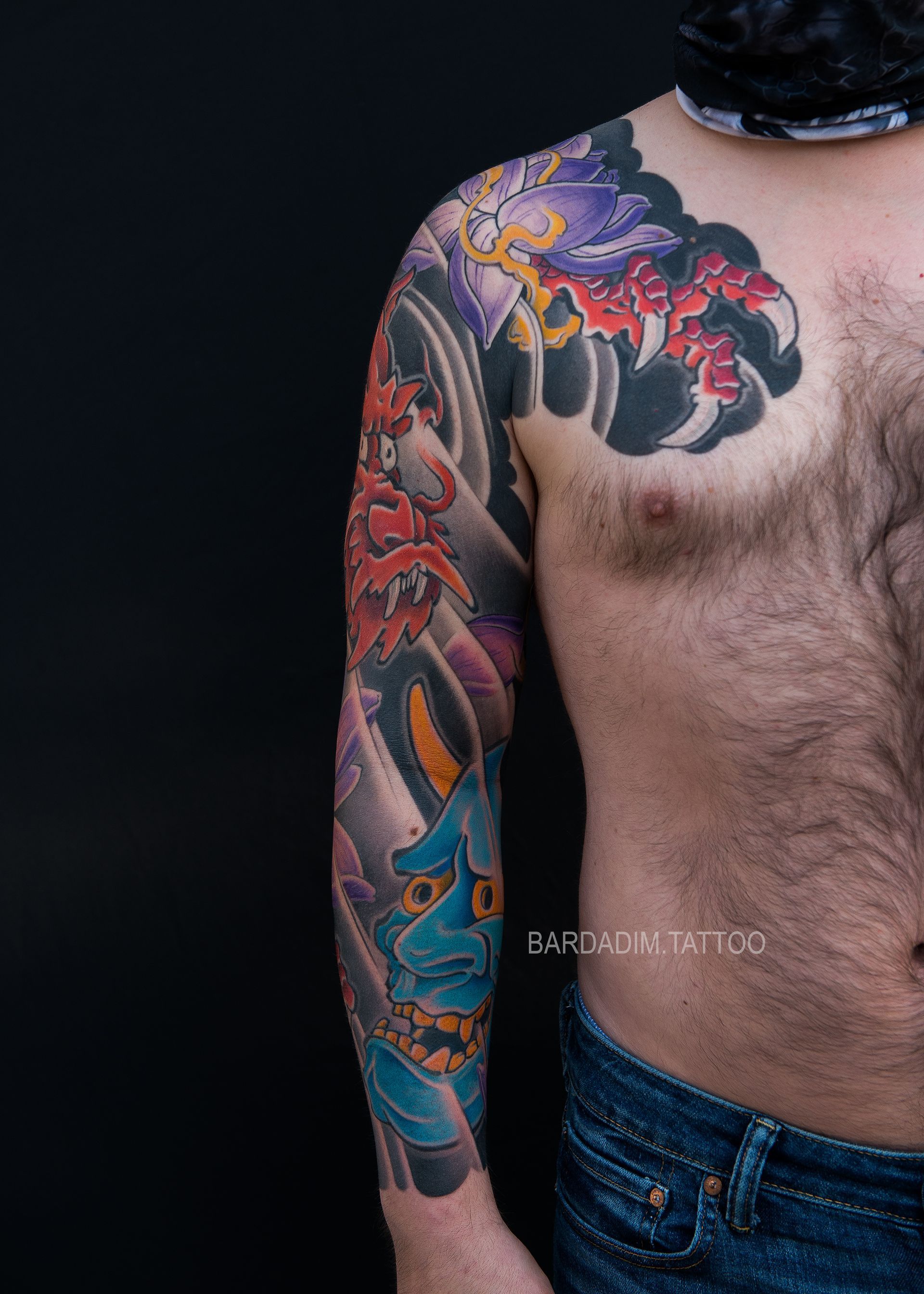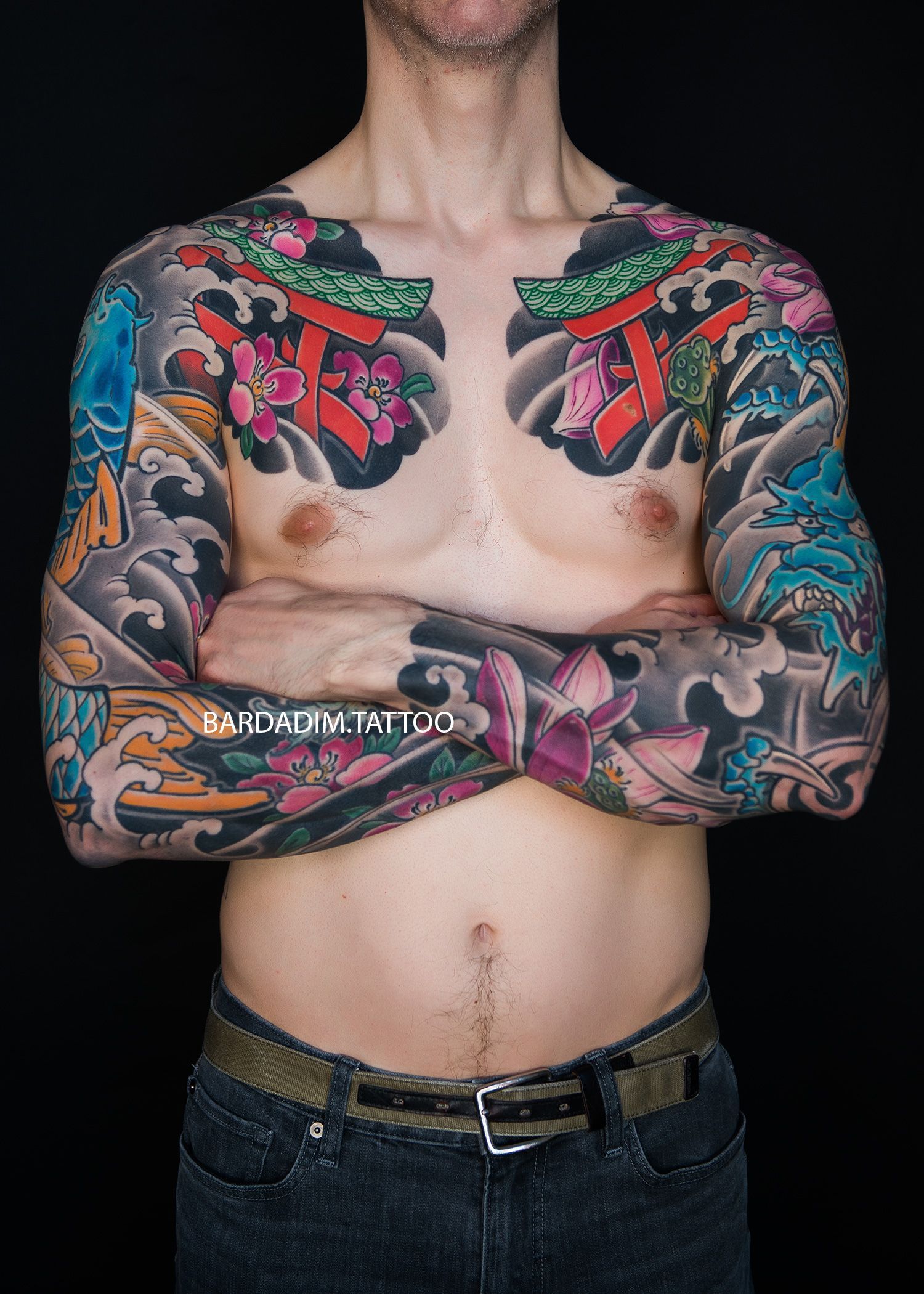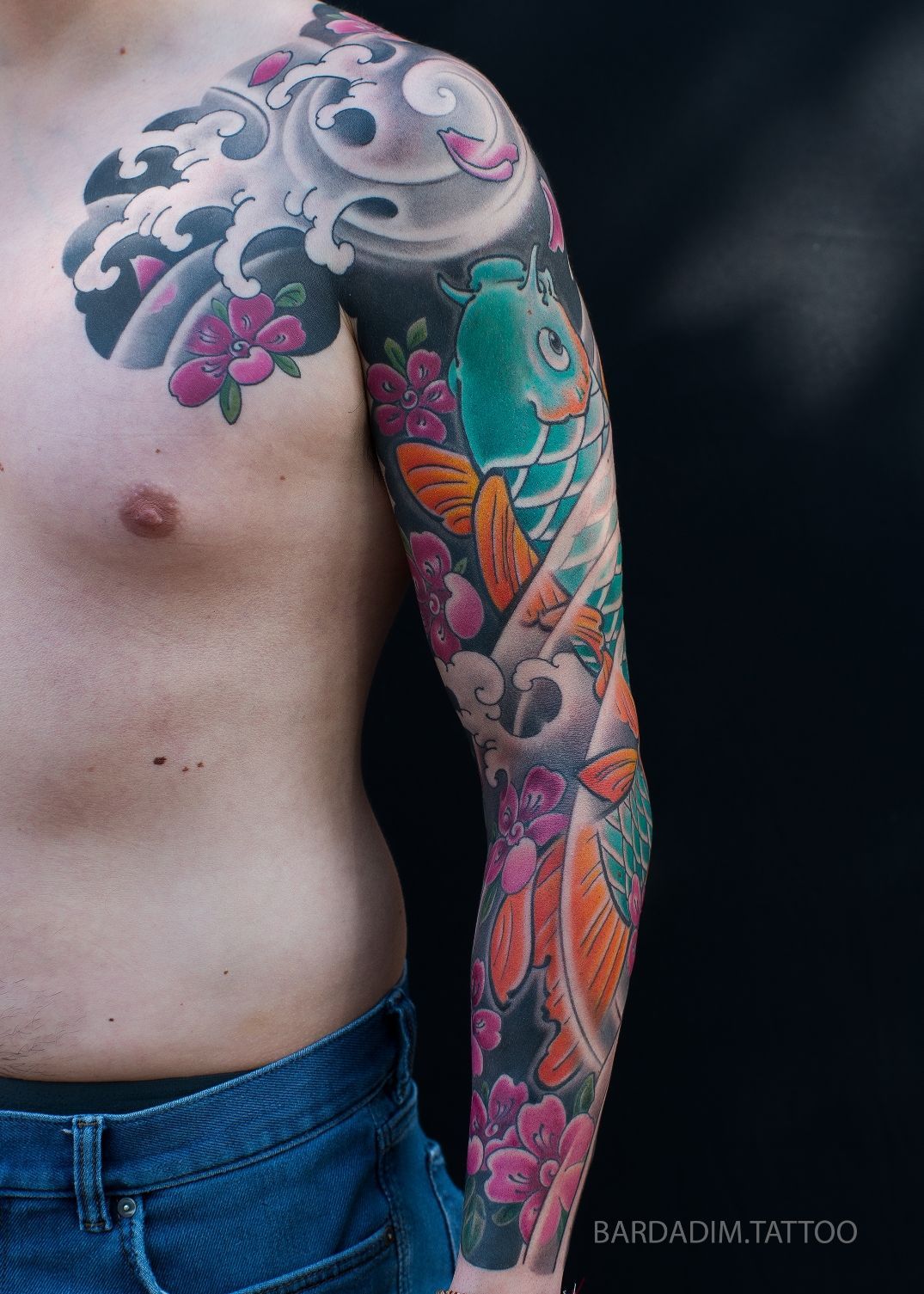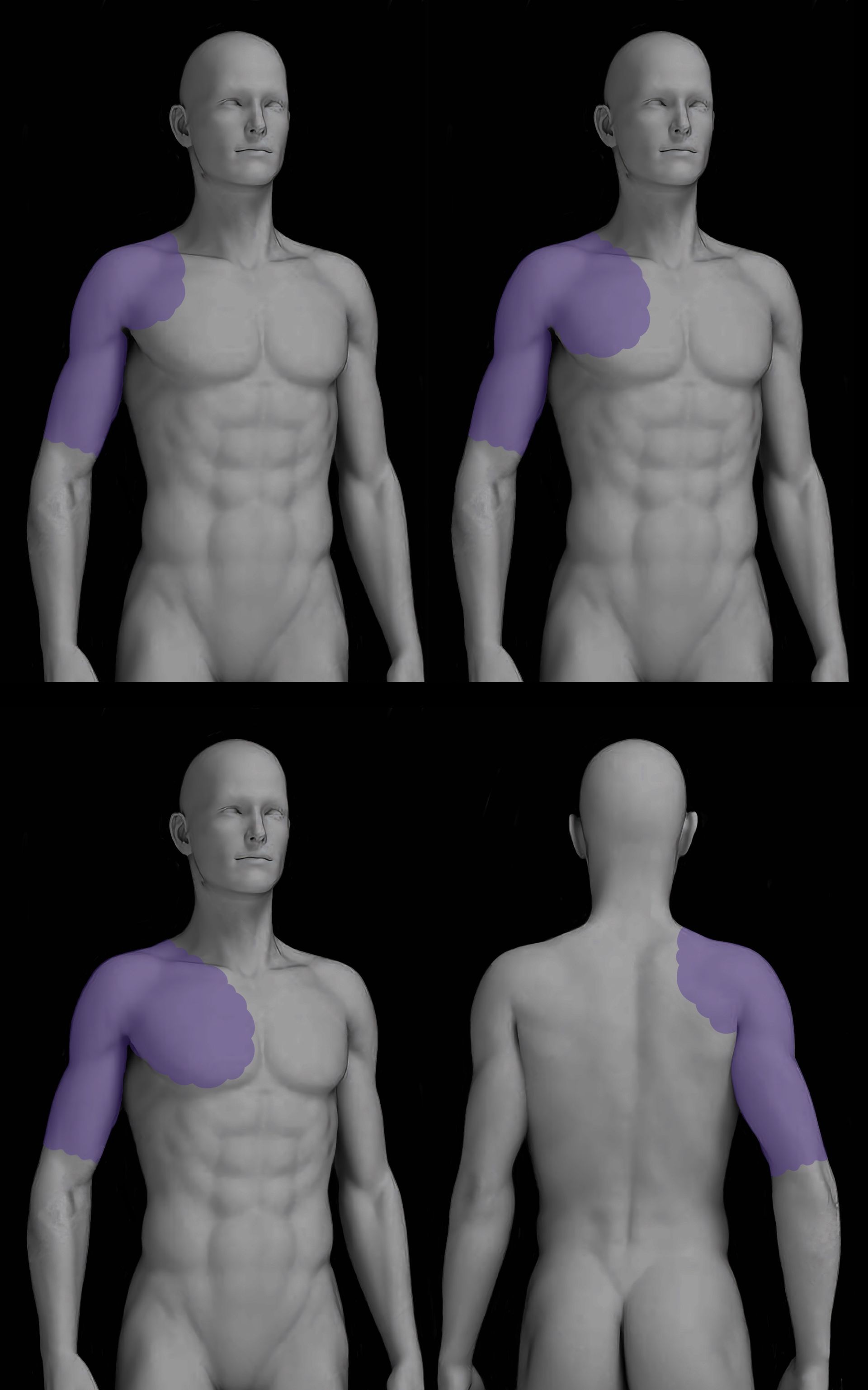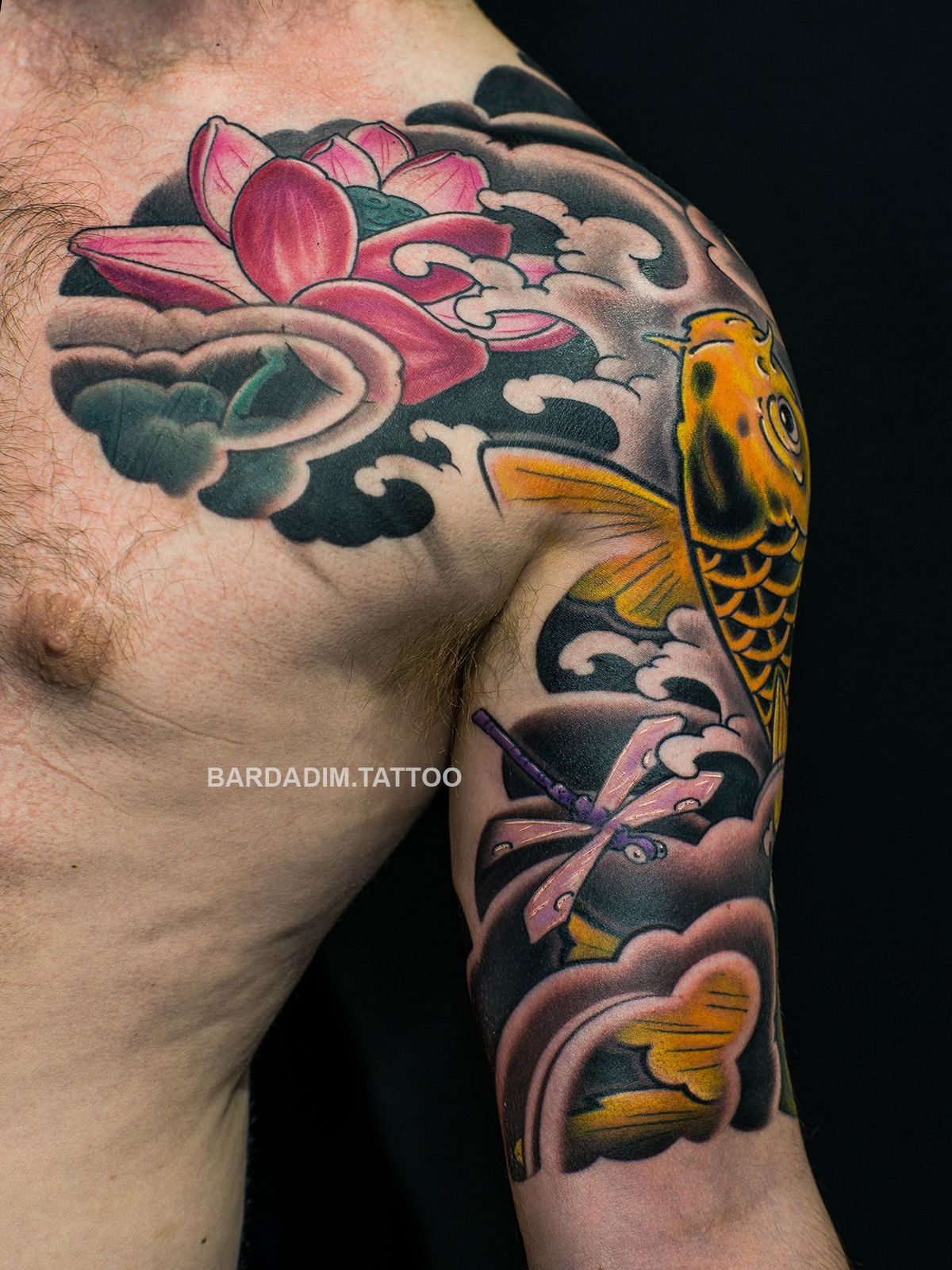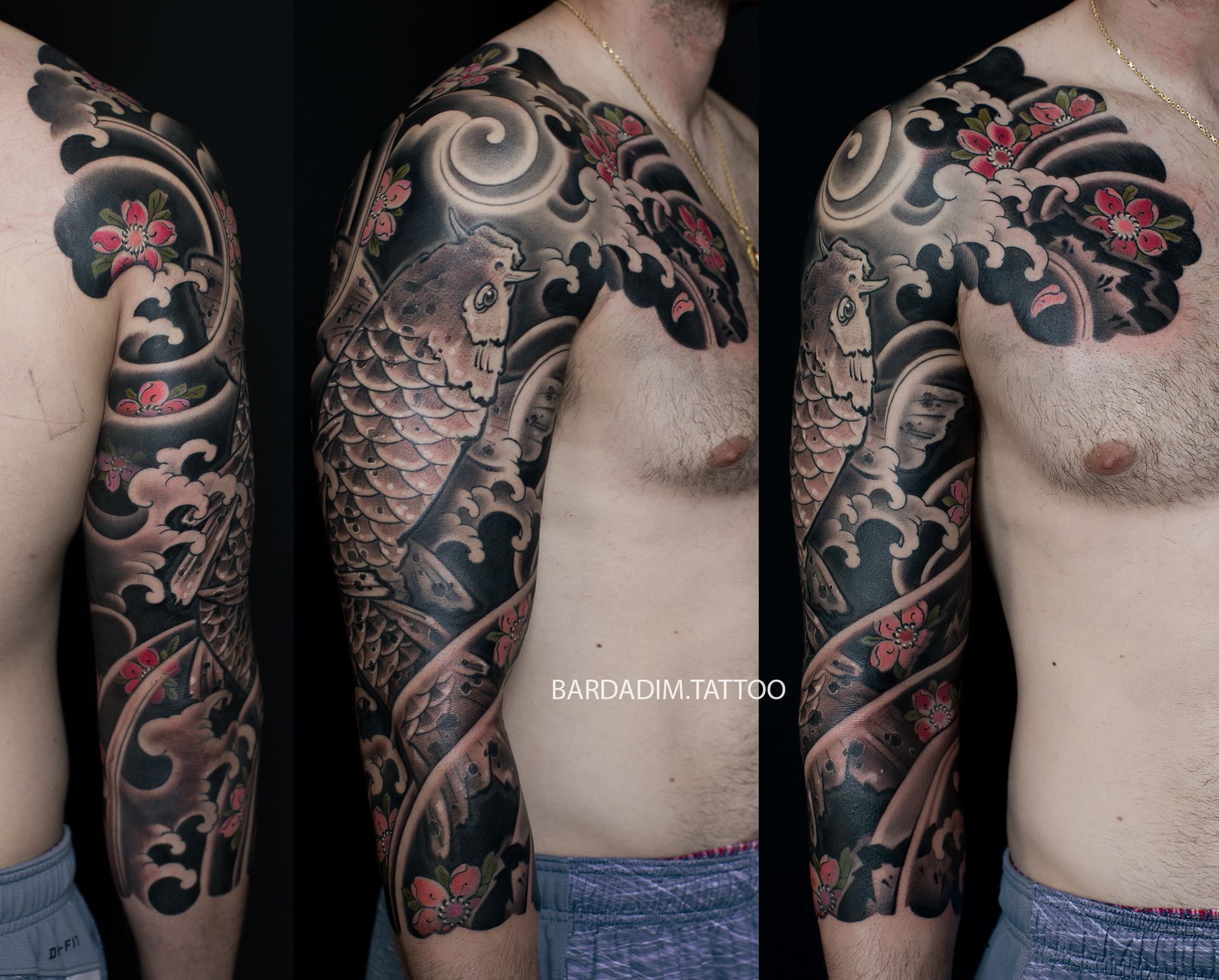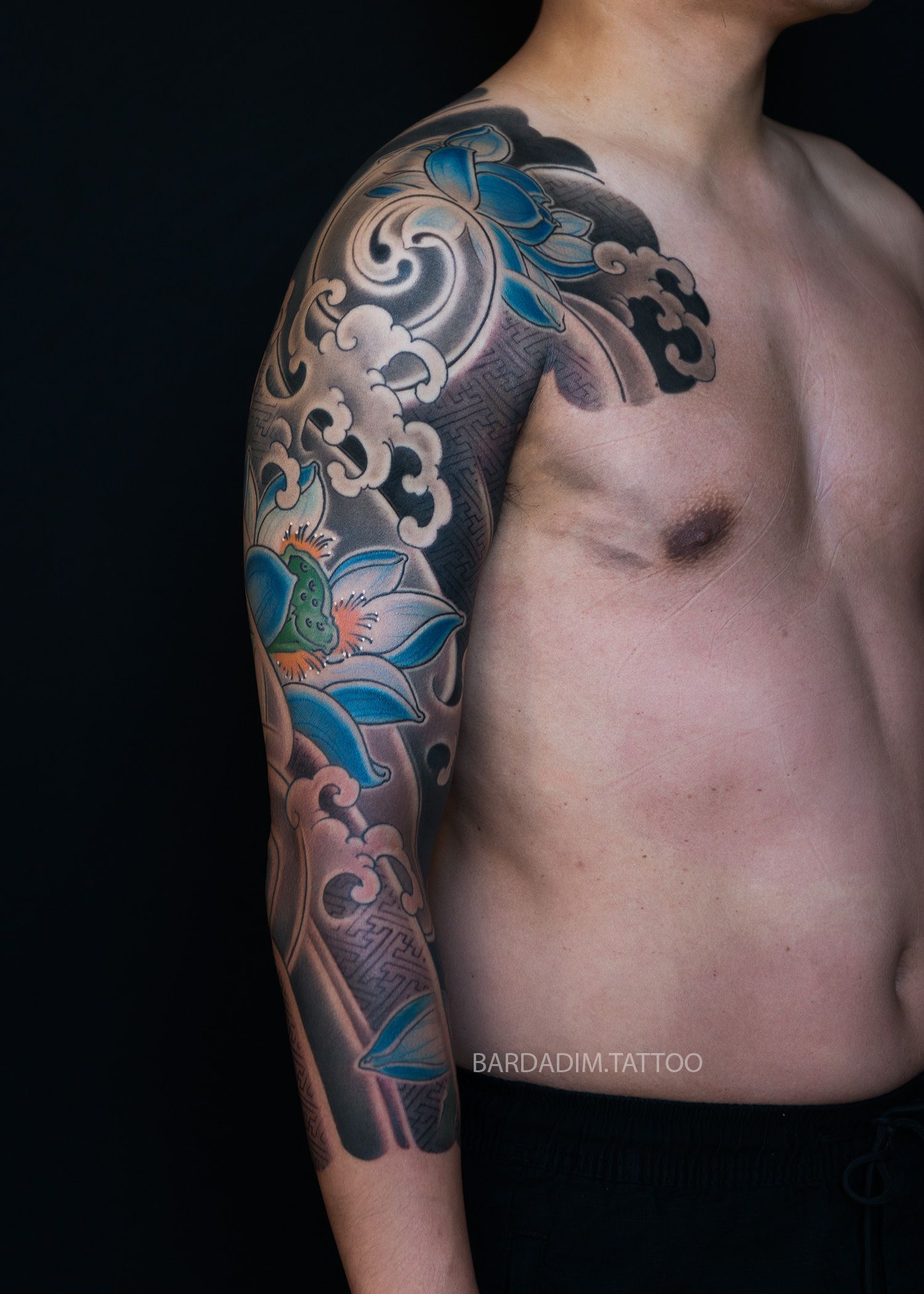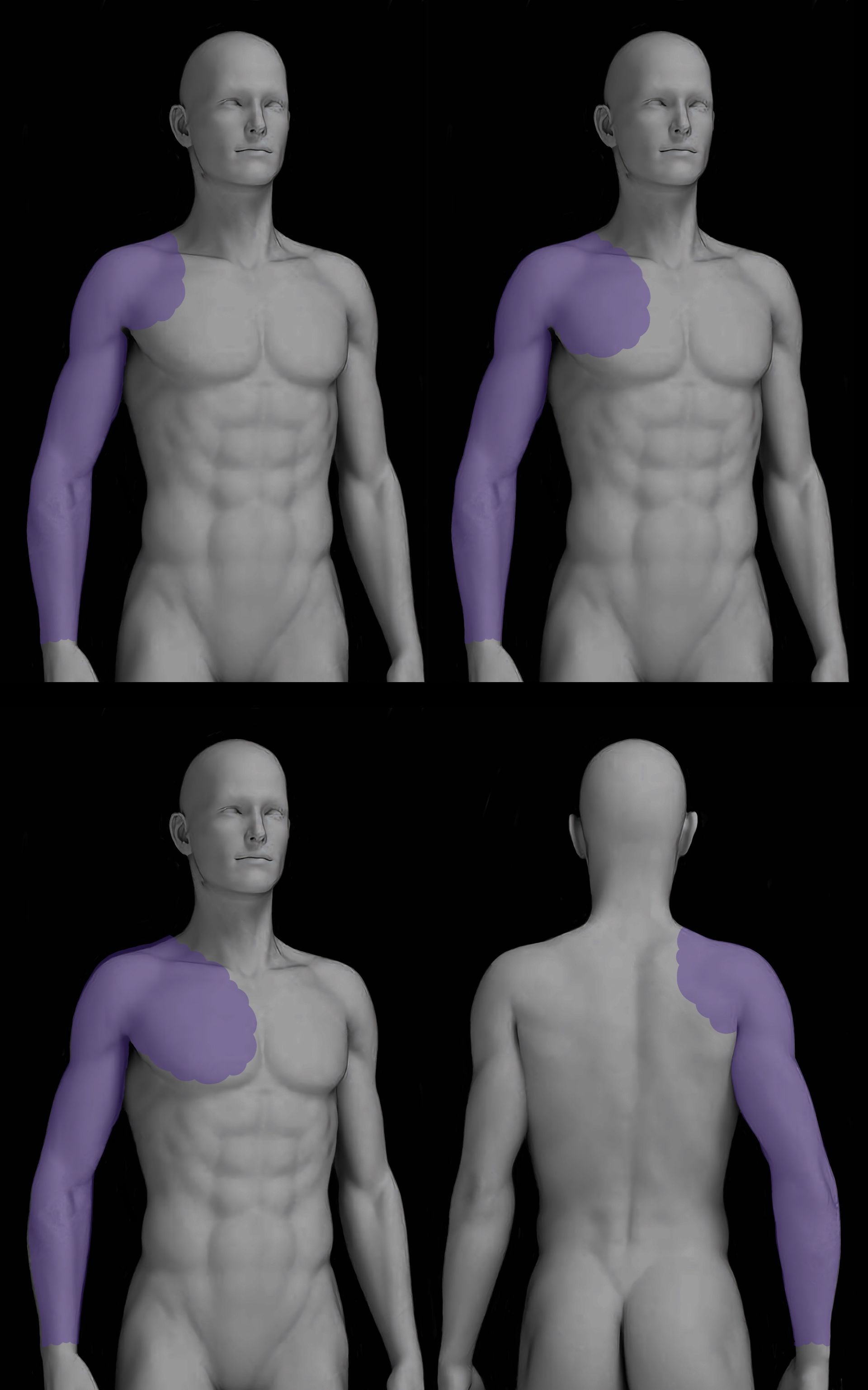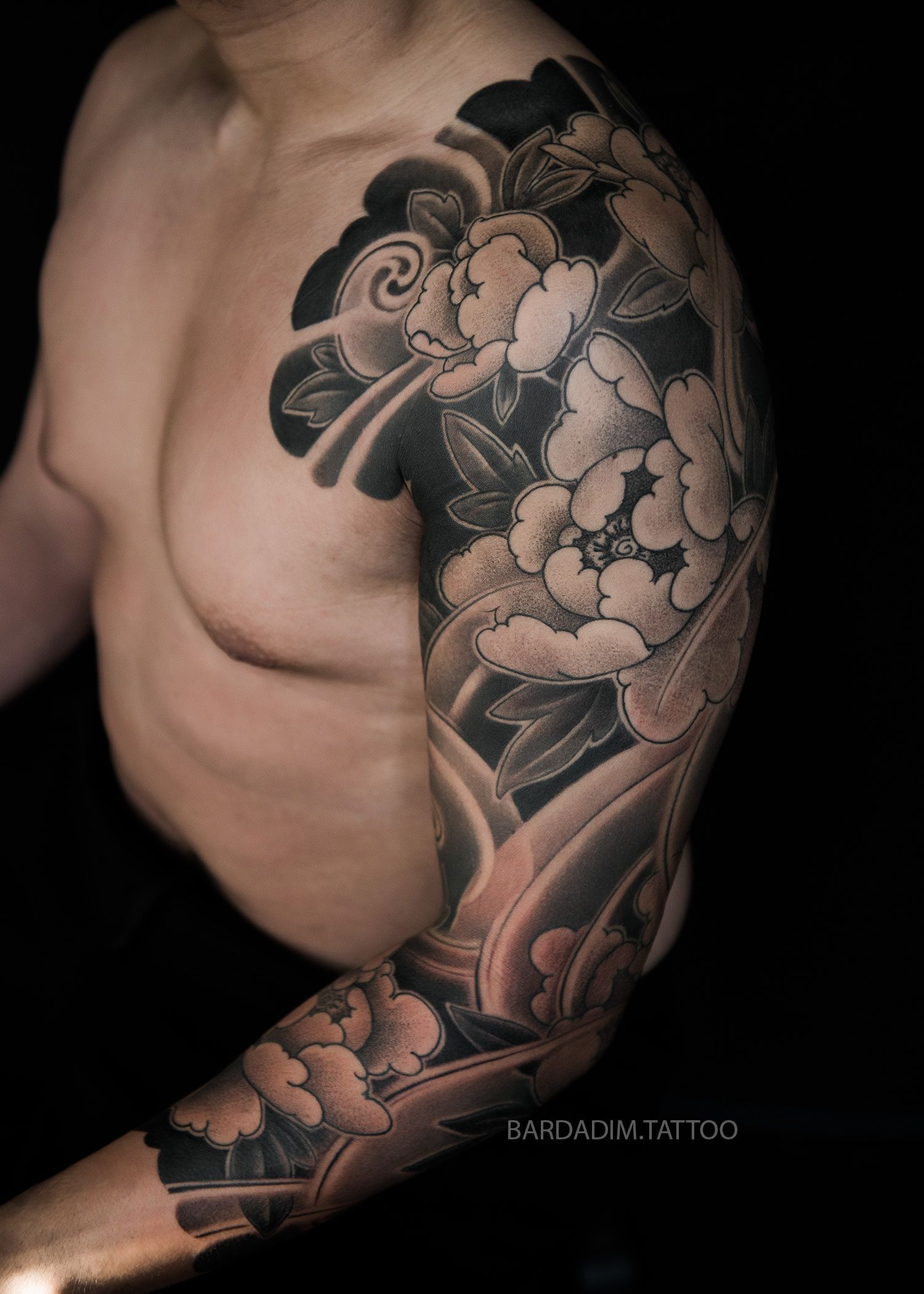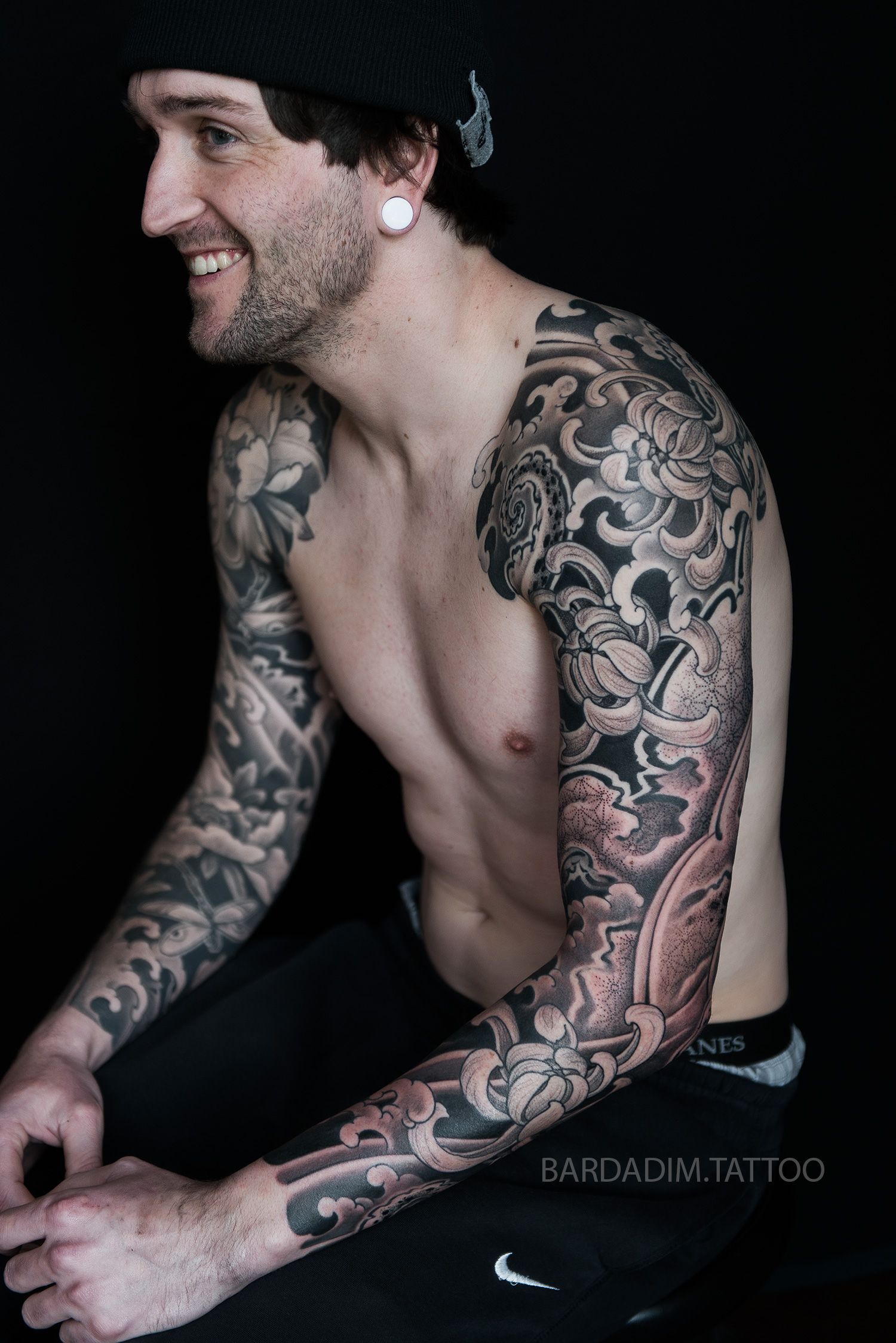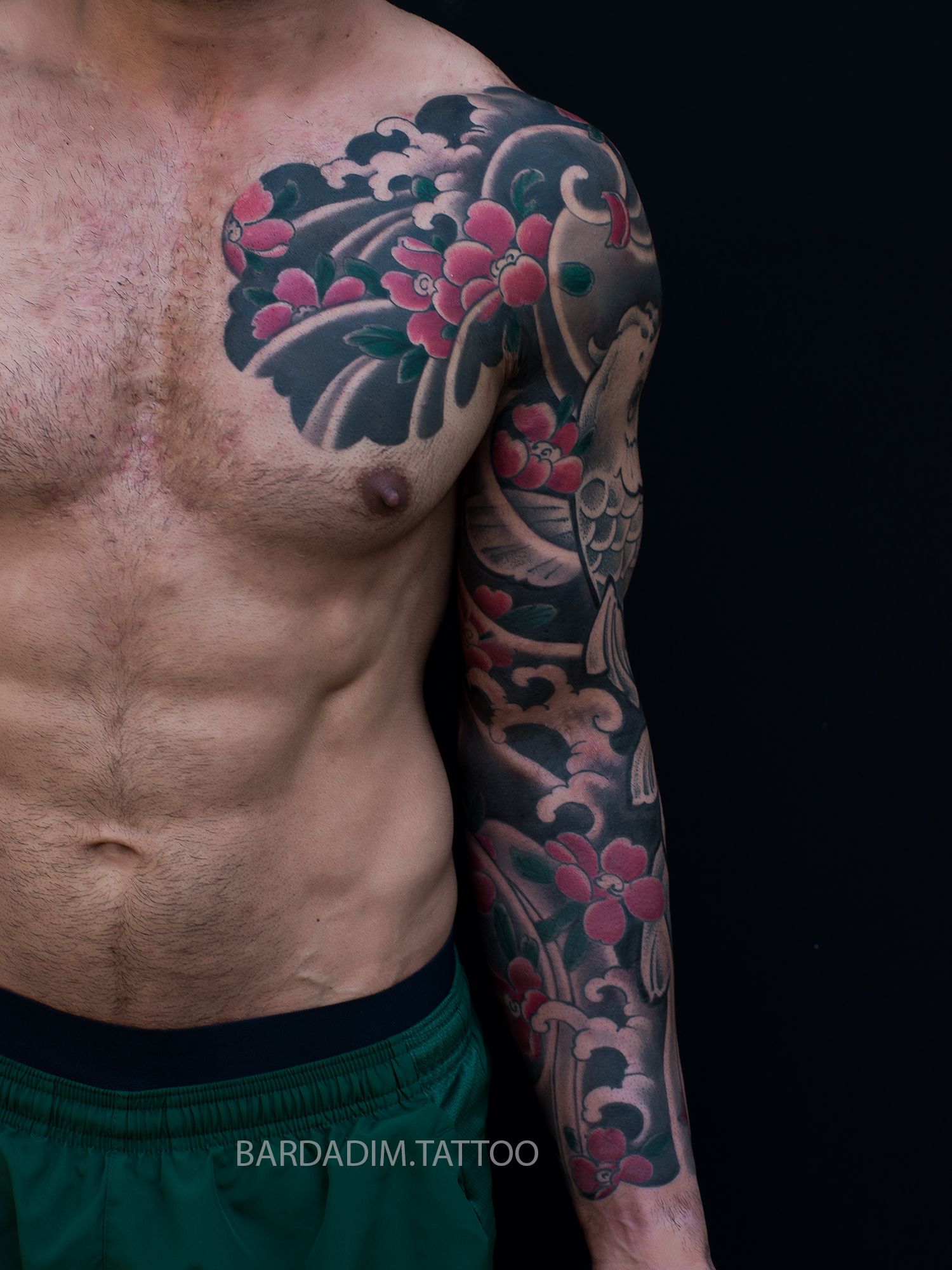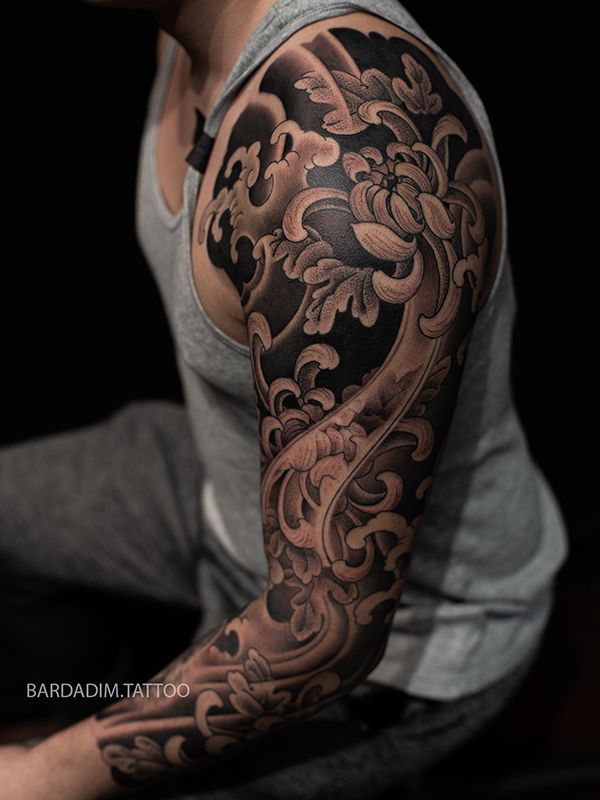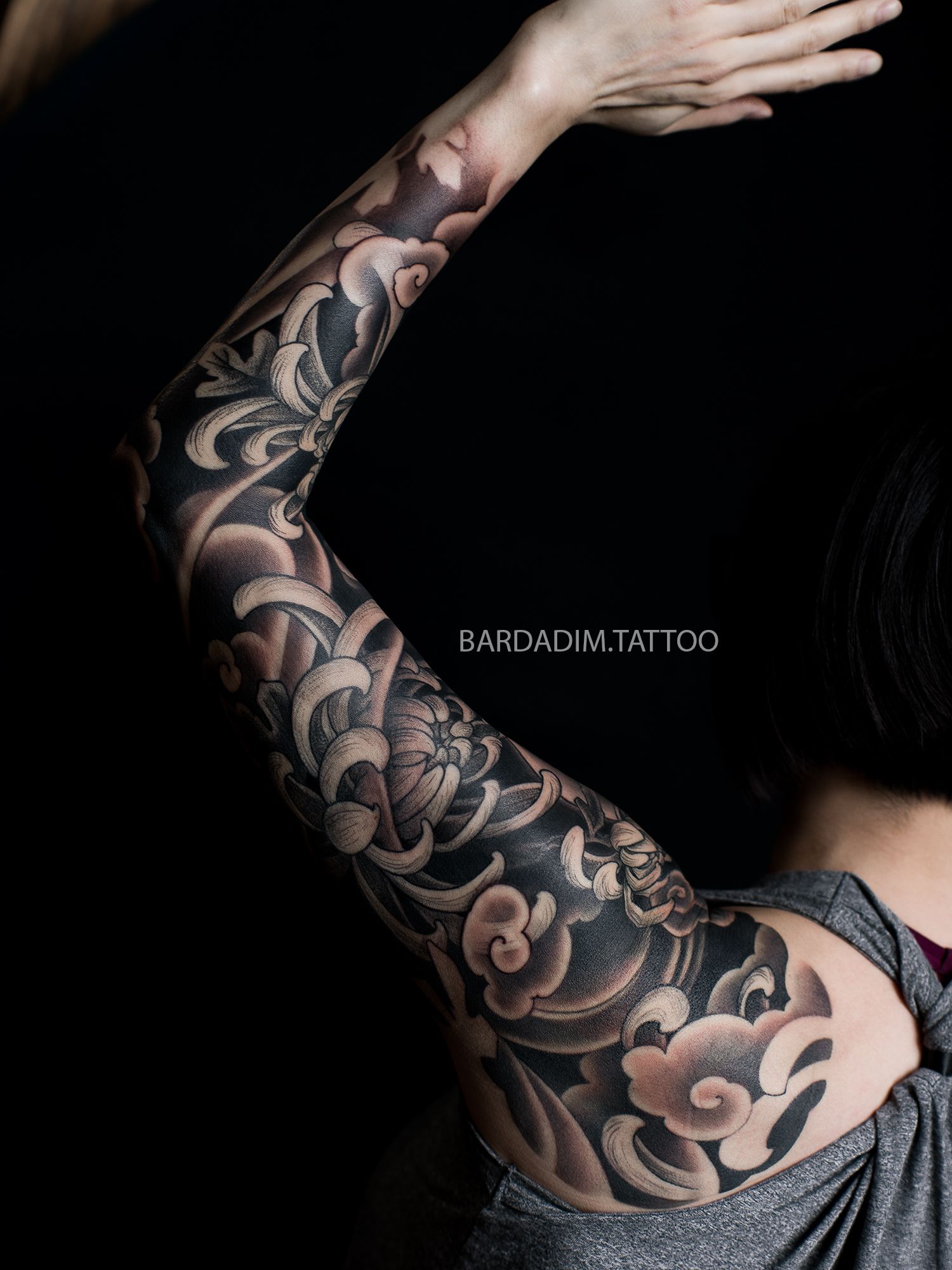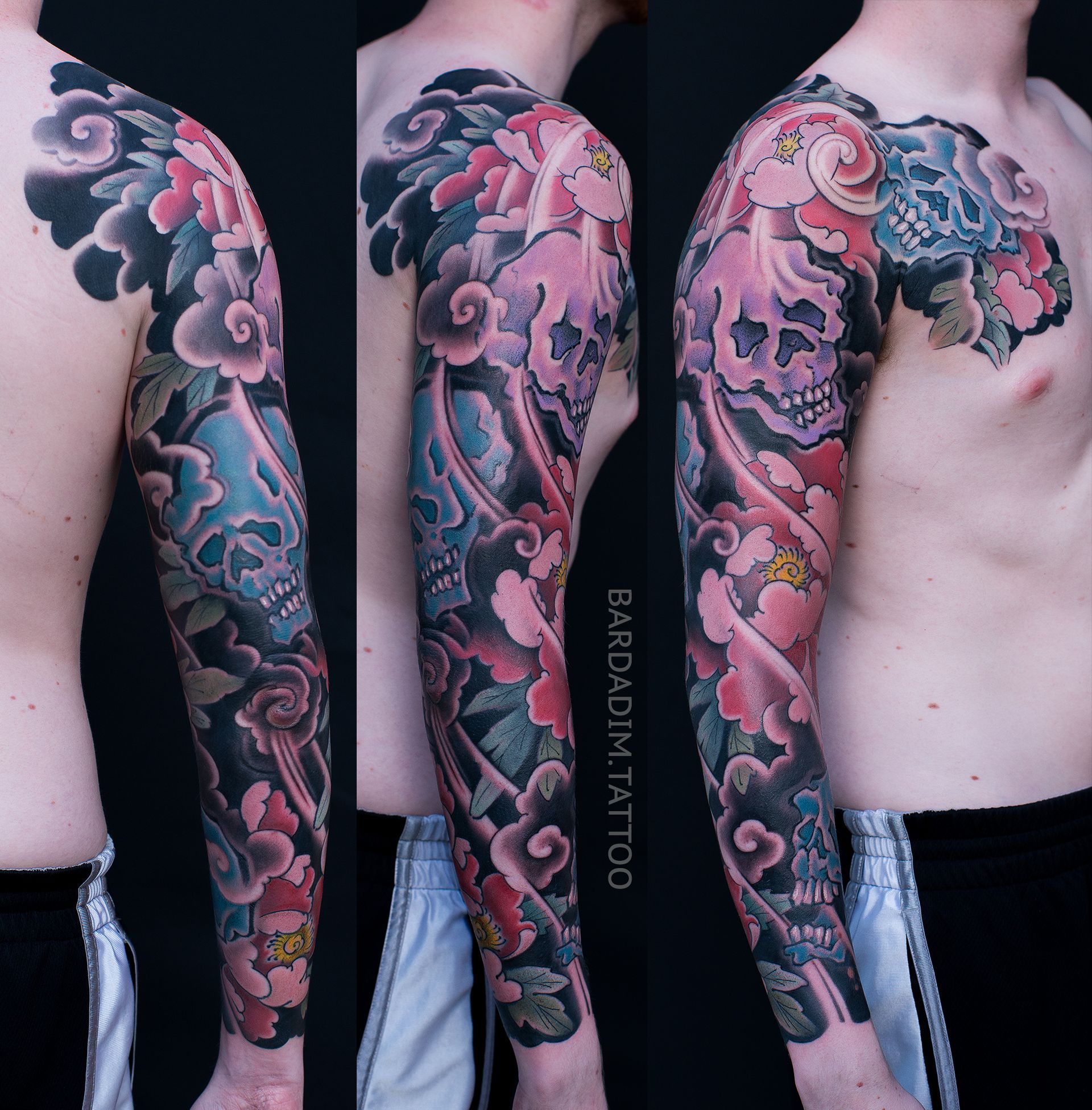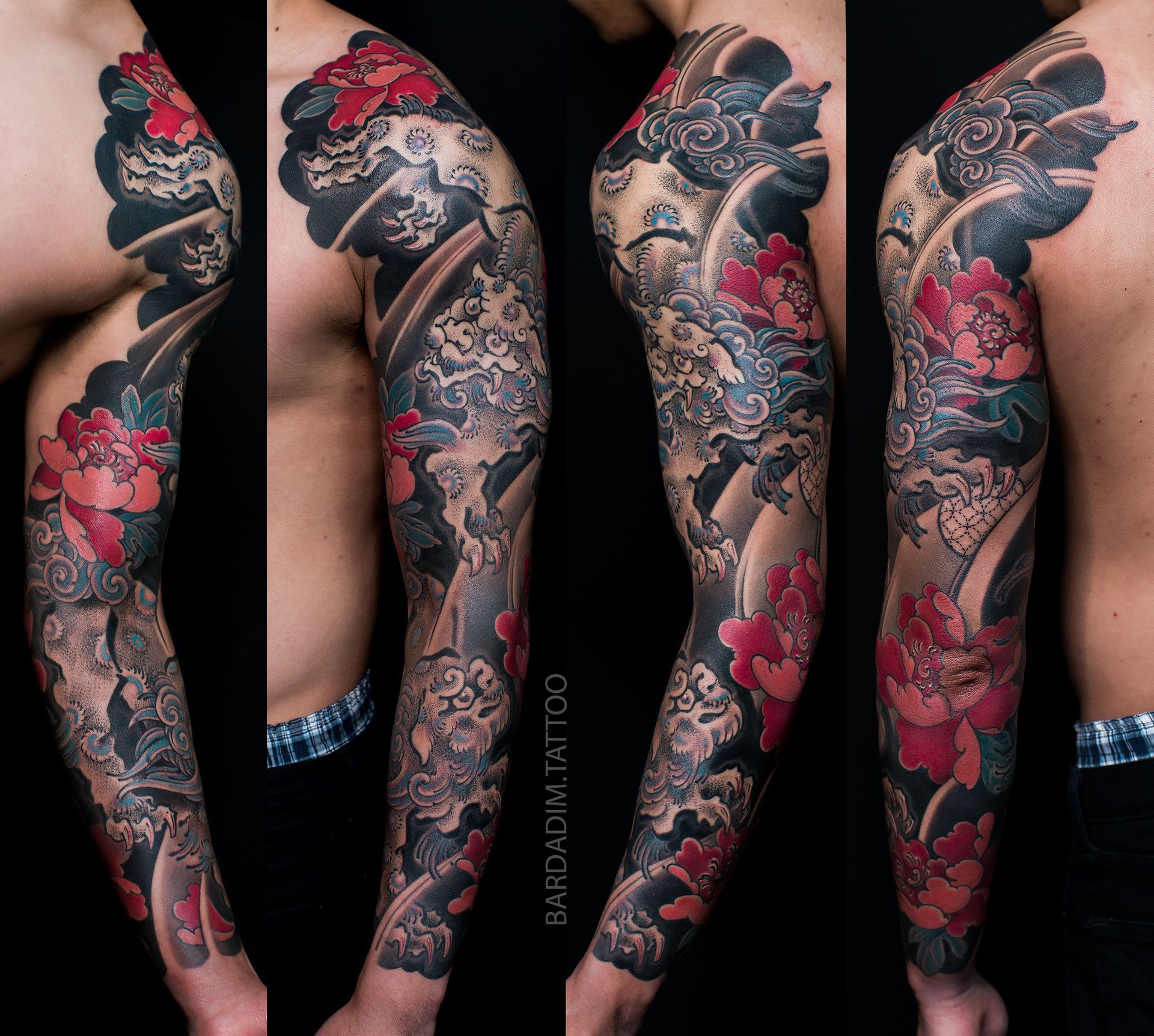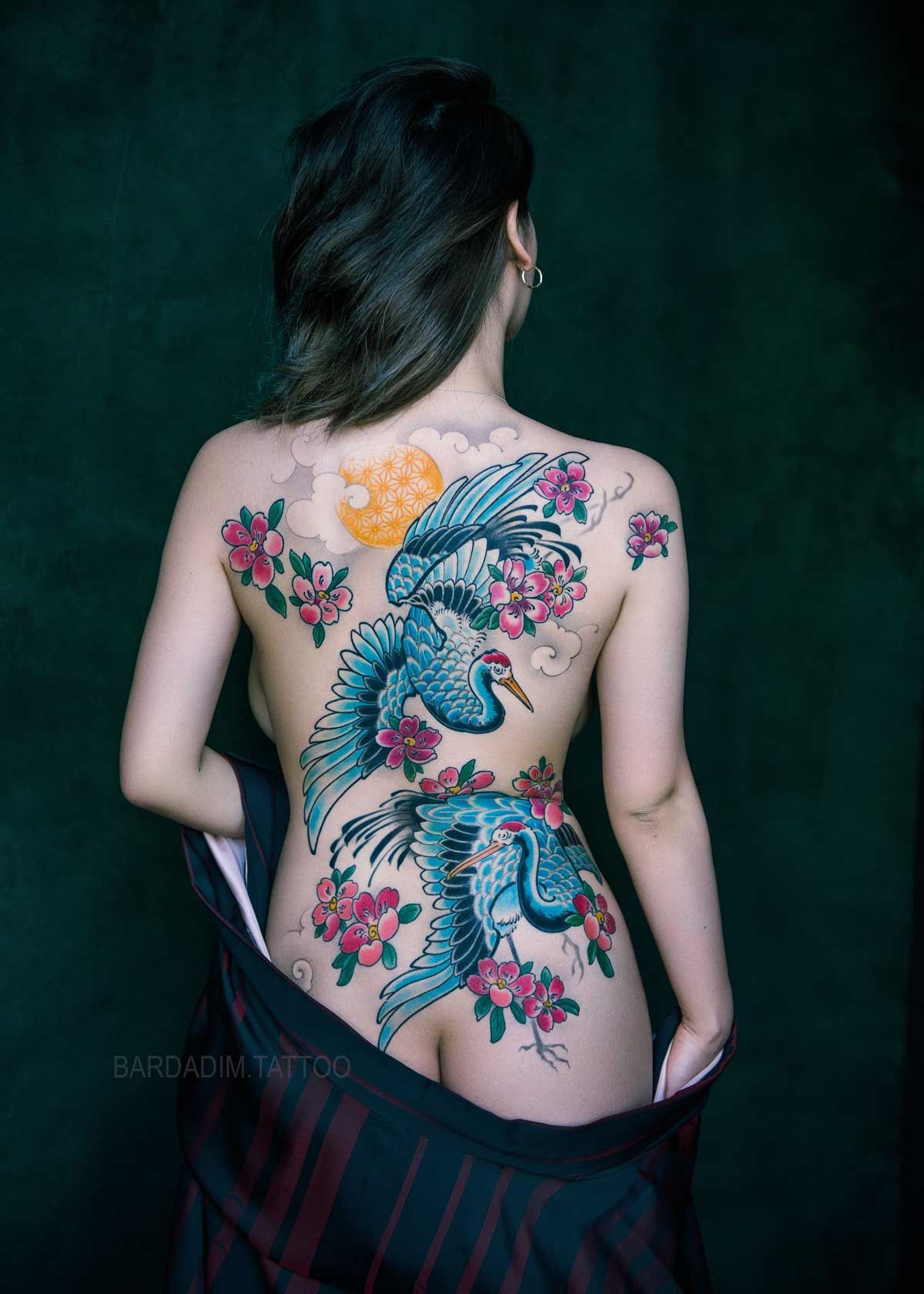Arm Sleeve
Japanese traditional tattoo patterns to be placed on arm
Tattoo Sleeve
To be called a ‘tattoo sleeve’ the tattooed arm must be ONLY arranged as the Gaku-Bori – it must have Mikiri of any kind.
All tattoo sleeves traditionally include a chest panel called ‘Hikae’ which can be done in slightly different ways and have different size.
#Pattern
Hikae
SHOULDERS AND ARMS
The verb ‘Hikae’ can mean “to restrain oneself” and this classic layout does just that. Hikae cover the shoulders and arms, making it possible to easily hide the tattoos with a v-neck shirt. There are 3 common types of hikae: ‘light’, which takes approximately 1/3 of a chest surface, ‘shallow’ which does not extend over the chest muscle and ‘deep’ which extends over the chest and sometimes surrounds the nipples.
3/4 Sleeve
Shichi-bu or Hati-bu (7/10 sleeve) – tattooed area started from chest panel(Hikae) and ended below an elbow. Approximately half way between elbow and wrist.
SHICHIBUSODE: THE SEVEN- TENTH SLEEVE
In irezumi, ‘shichitbusode’ refers to sleeves that stop below the elbow, as if a long sleeve is pulled up. The term is also used in clothing.
Full Sleeve
Kubu (nagasode) – tattooed area started from chest panel (Hikae) and goes all the way down to a wrist.
NAGASODE - LONG SLEEVES
The term ‘nagasode’, which means “long sleeves,” is also used to refer to shirts. Nagasode irezumi covers the entire arm and ends at the wrist. There are two lengths of sleeve: kubu and tobu. Kubu ends before the wristbone, while tobu goes beyond the wristbone, stopping right before the hand.
Not a Sleeve
SHOULDERS AND ARMS
Tattoo styles such as 'lower arm sleeve' or 'forearm sleeve' cannot be perfectly "framed" due to the lack of Mikiri options anatomically.
While it is technically possible to create such tattoos, we honor Japanese tattoo traditions and choose not to offer them in our studio.


